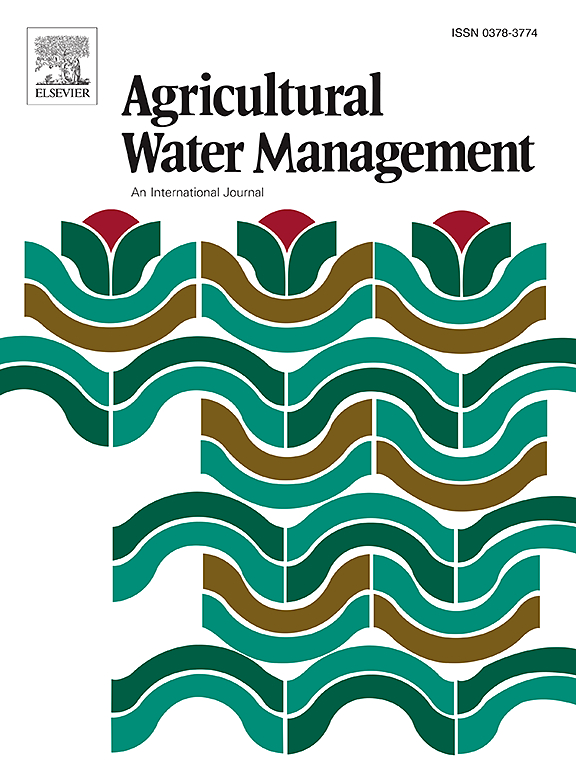灌溉和土壤管理系统与优化地中海半干旱条件下玉米作物生产的相关性
IF 5.9
1区 农林科学
Q1 AGRONOMY
引用次数: 0
摘要
通过不同耕作制度进行灌溉系统和土壤管理可能对玉米作物性能产生重大影响,因为它们能够改变土壤含水量和土壤物理生化特性。在当前的气候变化情景下,必须优先评估和实施能够提高水资源或土壤肥力等资源利用效率的农业系统。本研究的目的是评价在地中海半干旱条件下,两种分化良好的灌溉系统(即喷灌、S、漫灌、F)和三种不同的耕作系统(即传统耕作、CT、免耕留秸秆、NTr、免耕除秸秆、NT)对玉米生长、产量、氮素农艺效率(AEN)和灌溉水分生产力(WPI)的影响。平均而言,与F灌溉系统相比,S灌溉使玉米籽粒产量增加了16% %,AEN和WPI分别增加了23%和33% % (S灌溉系统下的平均总灌溉水量减少了25% %)。两种耕作制度在F灌溉条件下差异最大,CT优于NT灌溉。S灌溉条件下,CT耕作制度对产量成分的影响较低或无影响,CT耕作制度与NTr和NT耕作制度的产量、AEN和WPI相似。这项工作强调,采用节水灌溉系统(如S灌溉),再加上实施更保守的耕作方法,如免耕,是在半干旱的地中海条件下保持高产玉米系统可持续性的双赢策略。本文章由计算机程序翻译,如有差异,请以英文原文为准。
Relevance of the irrigation and soil management system to optimize maize crop production under semiarid Mediterranean conditions
Irrigation system and soil management through the different tillage system may have a significant impact on maize crop performance due to their capabilities to modify soil water content and soil physical and biochemical properties. Over the current climate change scenarios, the evaluation and implementation of agricultural systems that increase the efficiency in the use of the resources, like water or soil fertility, must be a priority. The aim of this study was to evaluate the impact of two well differentiated irrigation systems (i.e. sprinkler irrigation, S, flood irrigation, F) and three different tillage system (i.e. conventional tillage, CT, no-tillage maintaining the crop stover, NTr, no-tillage removing the crop stover, NT) on maize growth and yield % and agronomic efficiency of nitrogen (AEN) and irrigation water productivity (WPI) for a four years maize monoculture under semiarid Mediterranean conditions. On average, S irrigation increased maize grain yields by 16 % and AEN and WPI by 23 and 33 %, respectively, compared to F irrigation system (with an average total irrigation water applied that was 25 % lower under S irrigation system). The tillage system showed the greatest differences when was implemented under F irrigation, showing CT better crop performance than NT. Under S irrigation, the tillage system had lower o non-impact on yield components, observing similar yield, AEN and WPI between CT and NTr and NT tillage systems. This work highlighted that the adoption of water saving irrigation system (like S irrigation), together with the implementation of more conservative tillage practices, such as no-tillage, is a win-win strategy to maintain the sustainability the high-yielding maize system under semiarid Mediterranean conditions.
求助全文
通过发布文献求助,成功后即可免费获取论文全文。
去求助
来源期刊

Agricultural Water Management
农林科学-农艺学
CiteScore
12.10
自引率
14.90%
发文量
648
审稿时长
4.9 months
期刊介绍:
Agricultural Water Management publishes papers of international significance relating to the science, economics, and policy of agricultural water management. In all cases, manuscripts must address implications and provide insight regarding agricultural water management.
 求助内容:
求助内容: 应助结果提醒方式:
应助结果提醒方式:


